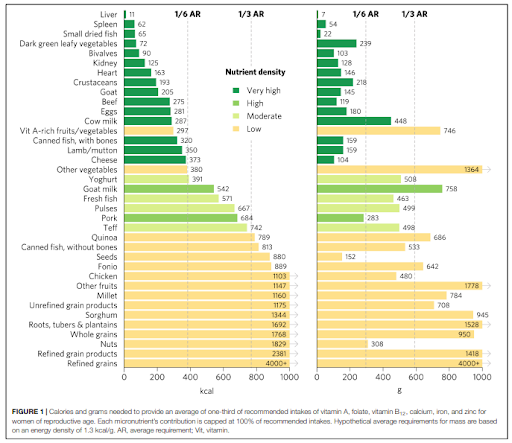Breakfast – the Most Important Meal of the Day. Or Is It?

The debate between breakfast consumption and skipping continues, with experts weighing in on both sides. Turns out, both can be viable options, depending on your preferences, planning, and the downstream effects on your health.
What researchers do agree on however, is the type of food to be eaten at the beginning of the day. They call it ‘health-promoting functional foods’. I will get in to this detail in a moment, but first, let’s explore the evidence behind the timing and how important is to have breakfast or not.
Let’s be honest, most of you reading this blog will be acutely aware of the current trend in intermittent fasting and are possibly choosing to not eat breakfast as this appears to support the current evidence. Well, this is partly true, however I want to unpack what the evidence is actually saying and help you make sense of the research, so your breakfast decisions are in line with what is right for you rather than go with the current trend.
Chrononutrition is the study of how the timing of eating affects health. This is an important fact to understand because it influences many aspects of health, like metabolism, body composition and risk of cardiometabolic diseases. Cardiometabolic diseases are things like, diabetes, stroke, heart attack, insulin resistances, which are often preventable.
The research is saying that, breakfast consumption can be viewed as health promoting because it’s influence on gene clocks expression assists in optimal endocrine function and metabolism. What is important to understand is, the choice of foods is key in making these gene clocks work effectively (1). On the flip side, the evidence to skipping breakfast is also beneficial, particularly for some people with cardiometabolic diseases if their breakfast choices are high in calories.
So, what are the researchers saying? Firstly, they are saying we have a circadian clock that operates 24 hrs a day that relies on certain behaviours for us to operate optimally. Exposure to light and darkness is one important behaviour, food timing and food quality is another. When it comes to breakfast, understanding the timing of food and nutrients contained in the breakfast meal is crucial. Health promoting functional foods are the type of foods required to optimally switch the genes on because they have the right macronutrients, and they also contain essential micronutrients that we can only get from our diet. Low functional foods do not do this.
The definition of Functional foods does vary depending on the country, however there is solid consensus to support the important of functional foods as the first meal of the day. Functional foods are wholefoods, particularly foods high in nutrient density, also known as ‘ Nutrient Dense Foods’ . Eggs, fish, whole grains, nuts, seeds, some dairy products, fermented foods, tea and coffee are examples of functional foods as they are rich in protein, micronutrients, fibre, antioxidants, monounsaturated oil (2,3).
‘Nutrient dense foods’ are food that I often talk about in clinic to my patients and in my online programs, these foods consist of high levels of essential nutrients that our body cannot make such as Vit D, A, B12, good fats, fibre and polyphenols that also produce low energy, also known as low calory. You will see in the table below, eggs, legumes, meat, fish, oats, broth, yogurt, cheese, dark green leafy vegetables are on top of the list in green indicating high nutrient density and low calorie. Refined grains, wholegrains, root vegetables, fruit represented in yellow, are lower in nutrient density and higher in calories. These are still important as wholegrains and fruit provide amply fibre and carbohydrate that is needed; however, the point is breakfast that contains only these foods will not serve you well in the long run as they will not optimally switch on the important genes that metabolism.

The take home message is if your breakfast choices are going to be only lower nutritional density foods, high calories foods then potentially it is best to skip breakfast and make sure your first meal is of better-quality functional food. Or better still, make changes to your breakfast and include a more wholefood meal.
There's no one-size-fits-all approach when it comes to breakfast, and there are plenty of functional food options to choose from to create a healthy morning meal, which is why I have created my online breakfast workshop with plenty of great recipes that are individually videoed to help you.
Let’s explore more about the timing of your breakfast and when is the best time. There are mixed results in the research, but when you dive a little deeper into some of the trials, the focus was not always on nutrient dense foods, but rather reduction in calories intake particularly for people experiencing cardiometabolic issues such as excessive body weight. These studies were positive when it came to weight reduction only, however it did not provide long term benefits (5). This is why long term dieting and calory restriction is not a great option.
Other studies looked at time-restricted feeding (TRF) and the different times of day that are best to eat. Time restricted feeding, also known as ‘eating window’ or ‘intermittent fasting’ again didn’t always include nutrient dense foods, it did conclude that eating in a 6-10 hr window earlier in the day, between 6.00am to 3.00/5.00pm showed the most positive results particularly for people with cardiometabolic issues not just weight loss (4,5). It is believed the reason why early intermittent fasting has better results with health is because it aligns with circadian rhythms of metabolism. This makes sense on an ancestral evolution level as humans have adapted to optimally function on a cycle of day and night. Clearly this is difficult for shift workers.
So, the question is “Is breakfast the most important meal of the day?” Yes I think it is.
How does breakfast look? To start with I think we need to reframe what we believe breakfast actually is. I like to refer to it as ‘The first Meal of the day’, rather than breakfast. This first meal is best to be packed with wholefoods including protein, complex carbohydrates and loads of micronutrients and is best to be part of a healthy eating window. This window is best to be 6-8 hours for a short time if you are wanting to improve your cardiometabolic health outcomes and best under professional support, however 10 hrs is a sweet spot for most people. The best place to start is to practice having an early dinner and making your first meal packed with goodness and experience the difference. For more support join my Breakfast for Busy People program or reach out for one on one support.
References
1. Santos HO, Genario R, Tinsley GM, et al. A scoping review of intermittent fasting, chronobiology, and metabolism. Am J Clin Nutr. 2022;115(4):991‐1004.
2. Rakhra V, Galappaththy SL, Bulchandani S, Cabandugama PK. Obesity and the Western diet: how we got here. Mo Med. 2020;117: 536‐538. 13.
3. Henry CJ. Functional foods. Eur J Clin Nutr. 2010;64(7):657‐659.
4. Bonnet JP, Cardel MI, Cellini J, Hu FB, Guasch-Ferré M. Breakfast Skipping, Body Composition, and Cardiometabolic Risk: A Systematic Review and Meta-Analysis of Randomized Trials. Obesity (Silver Spring). 2020
5. Early Time-Restricted Feeding Improves Insulin Sensitivity, Blood Pressure, and Oxidative Stress Even without Weight Loss in Men with Prediabetes Elizabeth F. Sutton et al


0 comments
Leave a comment
Please log in or register to post a comment